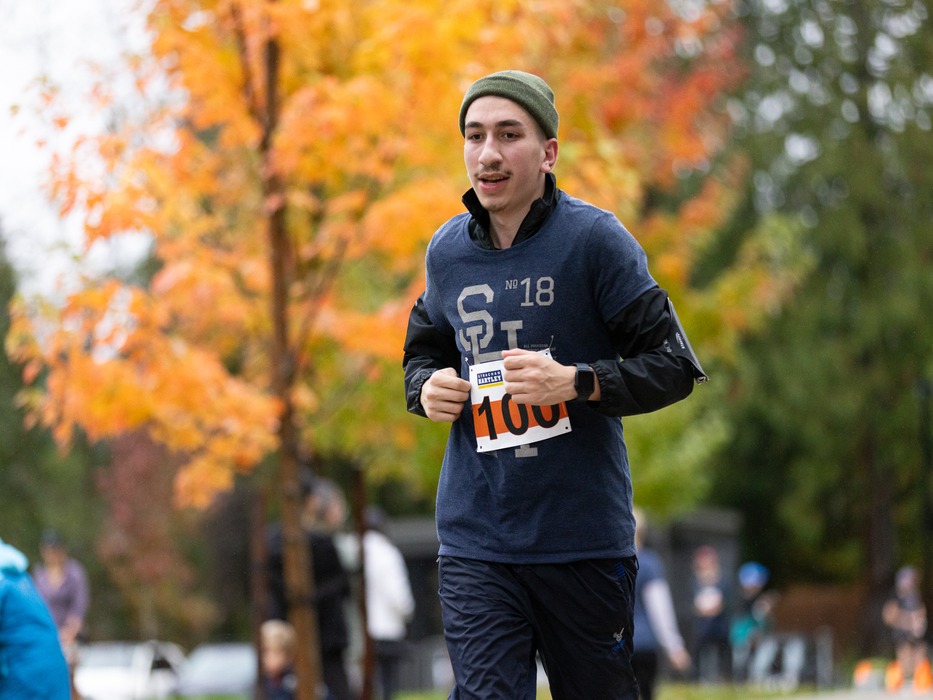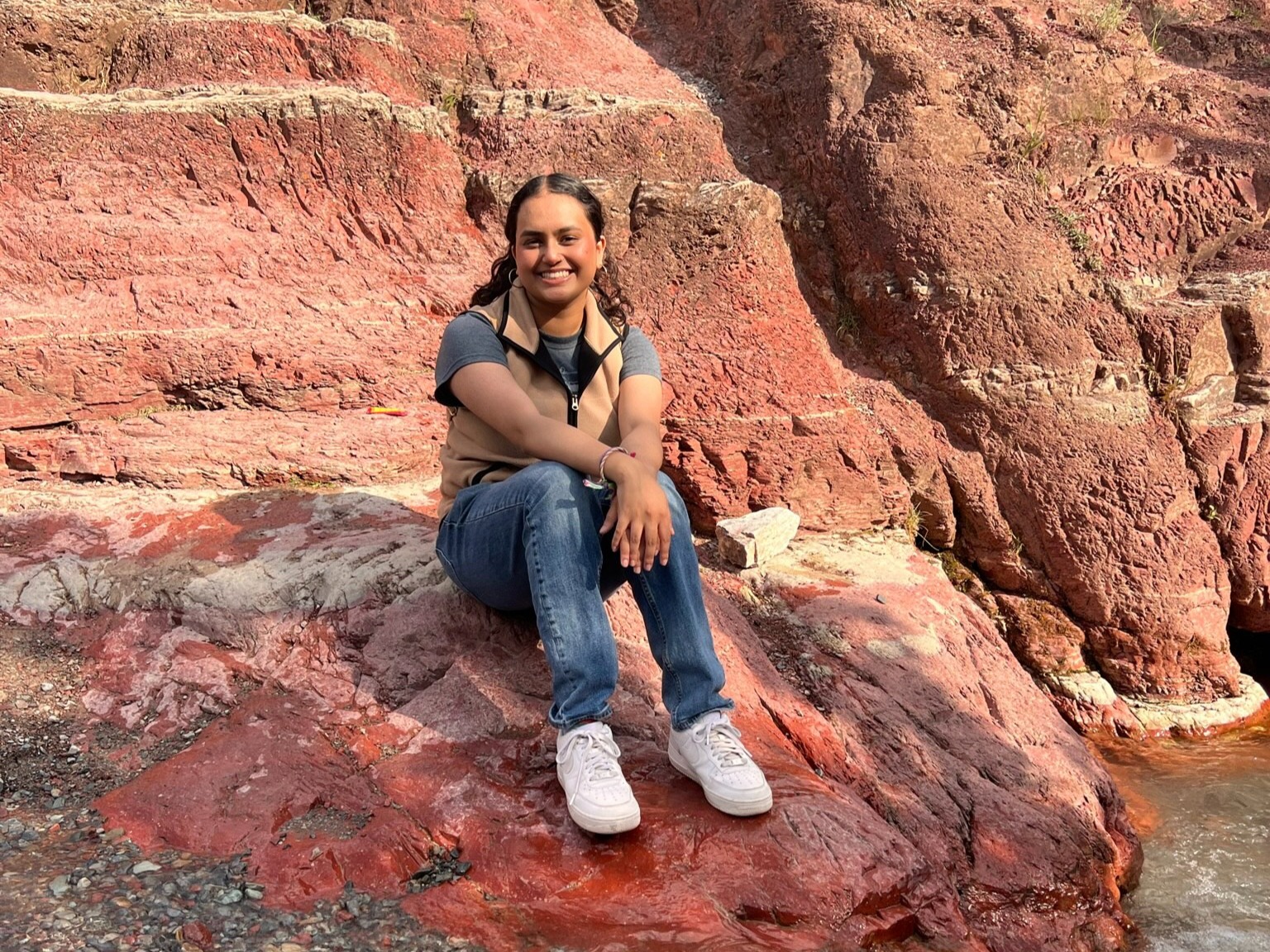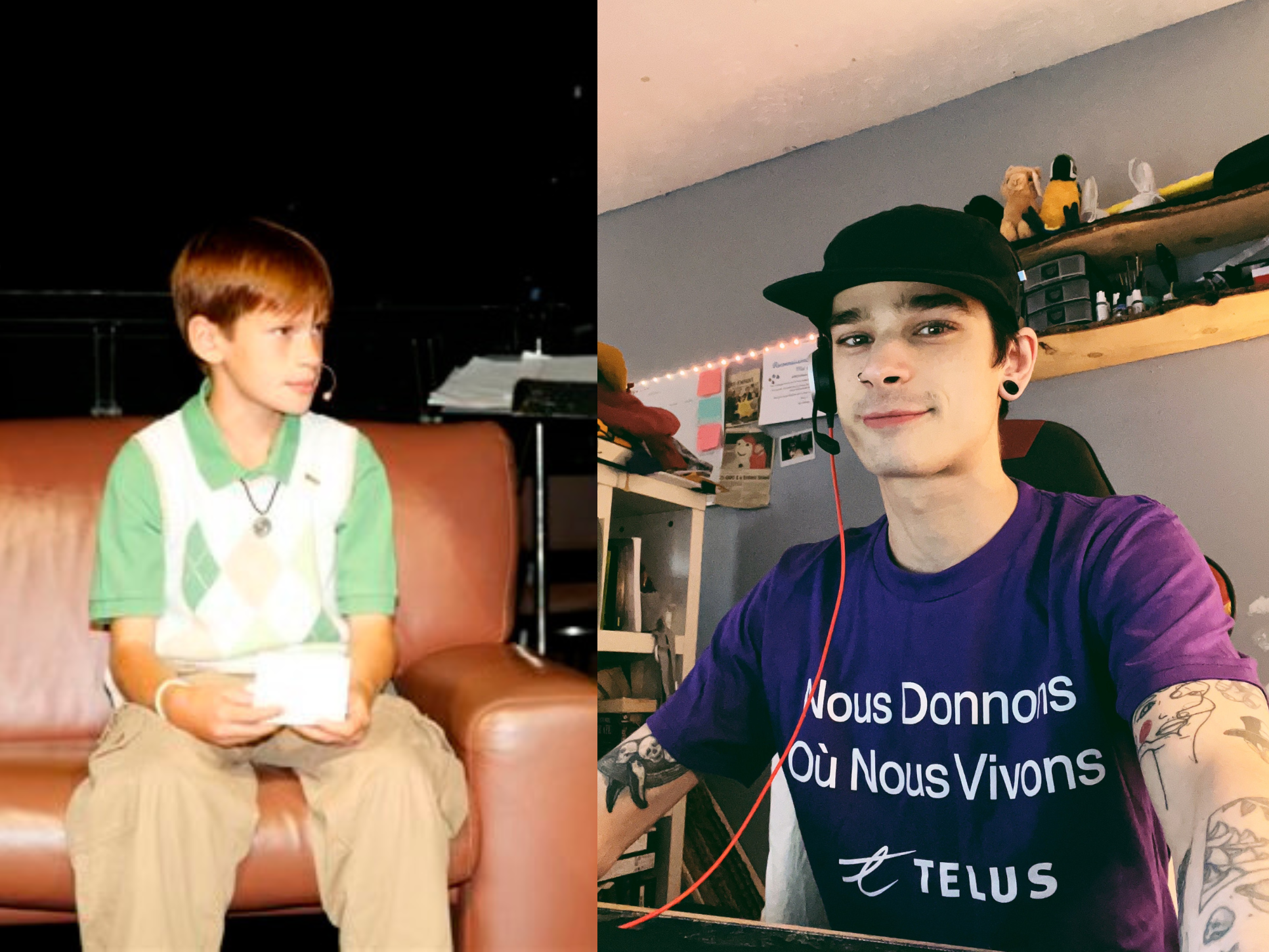
Giving back
Movement to end gender-based violence empowers Canadians to stand up in support of women and girls
Jun 30, 2022
Participants in this year’s Moose Hide Campaign Day in Victoria each displayed a piece of moose hide as a sign of their commitment to end violence against women and children. TEGAN MCMARTIN PHOTOGRAPHY
To the steady heartbeat of drums, a resolute and hopeful crowd gathered May 12 to march from Thunderbird Park to the green grounds of the B.C. Legislature in support of the Moose Hide Campaign.
The
walk
was short, but each step made by those gathered is one toward ending violence against women and children in Canada.That’s the focus of the
Moose Hide Campaign
, a powerful Indigenous-led grassroots movement dedicated to empowering boys and men to stand up with women and children and speak out against gender-based violence. Women, girls and all genders are also welcome to support the campaign and its goals.Half of all women in Canada will experience an incident of gender-based violence starting at age 16, a crisis that impacts a disproportionate number of Indigenous women and girls, according to David Stevenson, Moose Hide Campaign CEO.
Addressing the violence begins with acknowledgement, awareness and conversation.
“Domestic and gender-based violence is not necessary. It is not inevitable,” says Stevenson.
“It is in our hands to decide collectively whether we’re going to allow this and whether we’ll raise generations who will allow this.”
This year’s event – the first in-person march since the start of the COVID-19 pandemic – drew a large crowd to Victoria’s core. The event attracted participants from all walks of life – moose hide was the one thing the group held in common.
“Wearing a piece of moose hide is a promise to love and respect women in your lives and hold yourself and men accountable,” says Stevenson.
Also joining the event were several TELUS team members, led by Tony Geheran, Executive Vice President and Chief Operations Officer, Shazia Sobani, Vice President Network Implementation, Scott Dutchak, Vice President of Real Estate, Environment and Sustainability, and Patrick Barron, Vice President, Corporate Citizenship and Community Investment. Over the next three years, the tech company will provide $150,000 and in-kind support to the campaign – a reflection of its
deeper commitment
to Reconciliation with Indigenous Peoples, which weaves together four pillars, including connectivity, economic reconciliation, cultural responsiveness and enabling social outcomes by developing and expanding programs that help strengthen communities.Canada needs better digital policies to harness the power of connectivity for Canadians. Be part of the solution.
“As an organization, we take our responsibility to reconciliation very seriously, and it is our sincere hope that our partnership will help ensure that the Moose Hide Campaign’s powerful message about ending violence against women and girls will reach Canadians across the country,” says Geheran.
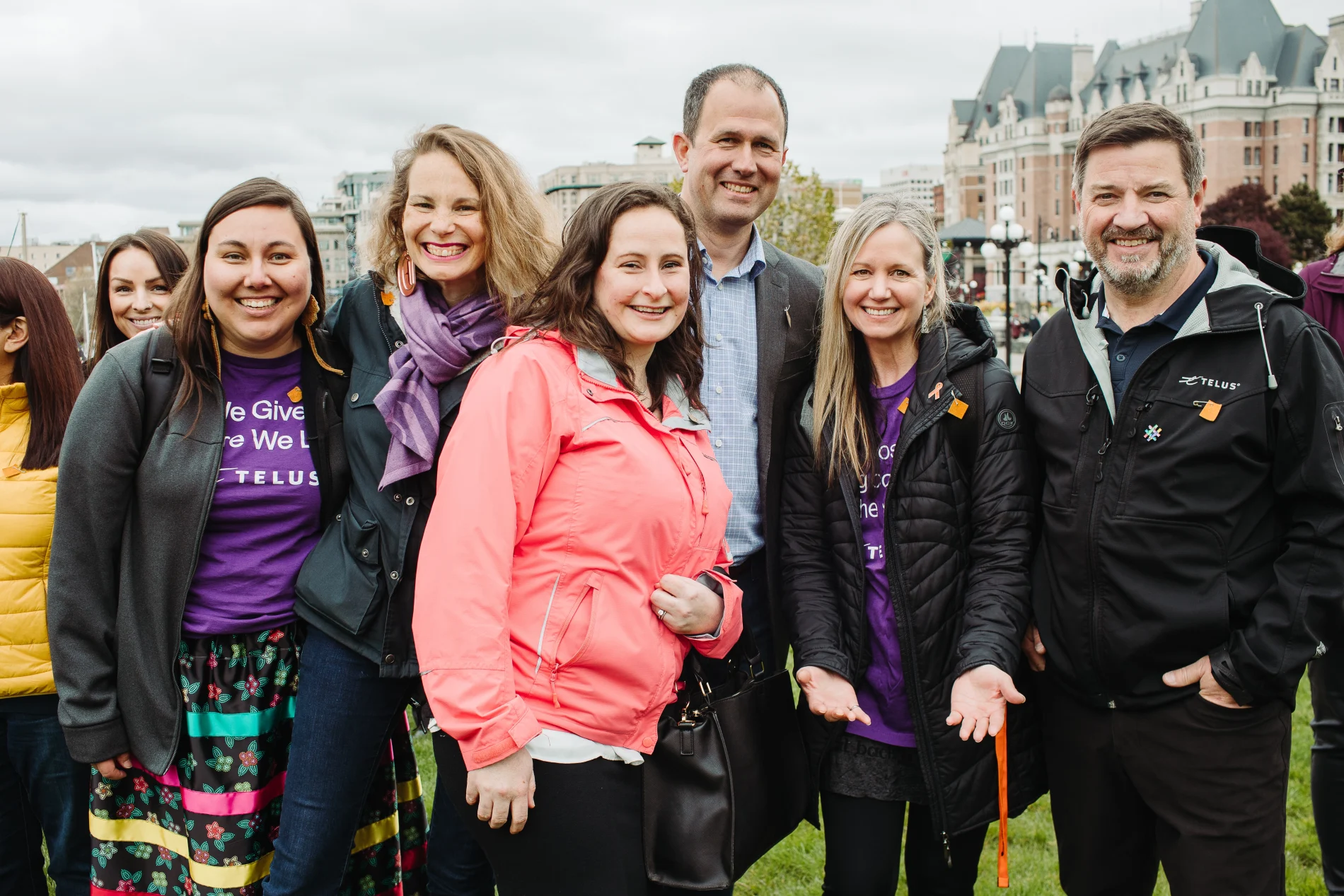
Joining the event were several TELUS executives and team members, led by Tony Geheran, Executive Vice President and Chief Operations Officer (pictured right) TEGAN MCMARTIN PHOTOGRAPHY
An inherent right to safety
The Moose Hide Campaign can trace its roots to 2011 when campaign founders Paul Lacerte of the Nadleh Whuten Band and member of the Carrier First Nation, and his daughter Raven, a member of the Lake Babine First Nation and Grizzly Bear Clan, brought down a moose near a dangerous stretch of highway in northern B.C., from which many Indigenous women have gone missing or were found murdered.
The significance of the location moved father and daughter to find a way to honour the lives of all
Missing and Murdered Indigenous Women and Girls
across the country, and to encourage Canadians at large to stand up and take meaningful action to address gender-based violence. Initially, they decided to use the tanned moose hide from their hunt to craft 20,000 specialized pins — handing them out to boys and men as a sign of their commitment to end violence against Indigenous women and children. Their effort has since grown into a nation-wide movement, involving Indigenous and non-Indigenous communities from coast to coast.“This is an issue that cuts across all socio-economic and cultural parts of Canada,” says Stevenson.
To date, more than three million campaign pins have been distributed, starting an estimated 150 million crucial conversations on gender-based violence and healthy masculinity.
As the campaign grows, so too has the need for a reliable partner. In addition to the $150,000 funding, TELUS is committed to amplifying the campaign’s reach through the distribution of more than 25,000 campaign pins to its team members and customers at select retail store locations, starting in British Columbia.
The company will also work alongside the Moose Hide Campaign to raise awareness of and amply the campaign’s message, enabling even more Canadians to connect with the cause.
In the early days of the movement, the Moose Hide Campaign Day attracted a small number of participants, says Stevenson. Today, the movement is marked as a national day of ceremony that starts with a daybreak ceremony from Mi’kmaq territory on the Atlantic Coast to the fast-breaking ceremony in the Pacific region. (Central to the day is an invitation for participants to fast — a ceremonial practice common in some Indigenous cultures when making personal and collective commitments or doing important work.)
This year, while those in Victoria gathered in person to march in support of the movement, more than 400,000 people — including 300,000 students from kindergarten to Grade 12 — watched the event via livestream, attending workshops and viewing the speeches on the Legislature lawn, including one given by Paul Lacerte’s daughter and Raven’s sister, Sage Lacerte.
“Women and children have an inherent right to safety and love and respect,” Sage told those gathered and watching online. She likened the effort to halt gender-based violence to a relay race where the baton is passed intergenerationally.
“This is our time now to hold the baton and each generation must ensure that the next has tools in their basket to succeed in our effort to end violence and for us all to be prosperous.”
TELUS’ partnership with the Moose Hide Campaign is a continuation of its commitment to do its part to respond to the
231 Calls for Justice
, specifically Call for Justice 15. In 2021 TELUS announced the launch of Mobility for Good for Indigenous Women at Risk
, partnering with Aboriginal Friendship Centre of Calgary, Hinton Friendship Centre Society, Red Deer Native Friendship Centre Society, Miywasin Friendship Centre, Napi Friendship Association, Grande Prairie Friendship Centre, Prince George Native Friendship Centre, BC Association of Aboriginal Friendship Centres, and Native Courtworker and Counselling Association of British Columbia to provide free smartphones and service to Indigenous women at risk or surviving violence. To learn more about TELUS’ commitment to reconciliation and to read the 2021 Reconciliation and Indigenous Connectivity Report
visit telus.com/reconciliation
.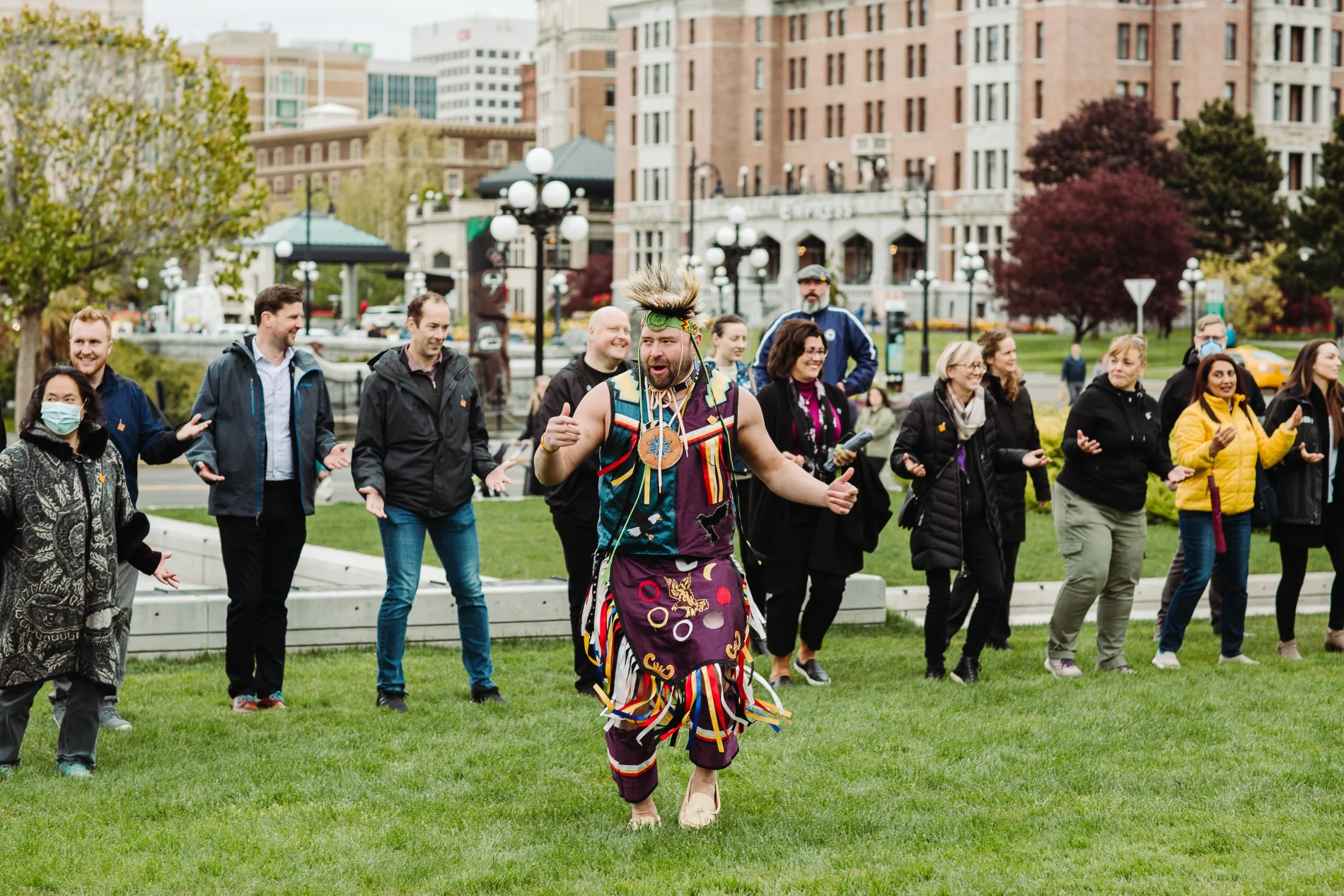
TELUS is committed to amplifying the campaign’s message through the distribution of more than 25,000 moose hide pins to its team members and customers at select retail stores, starting in British Columbia.
